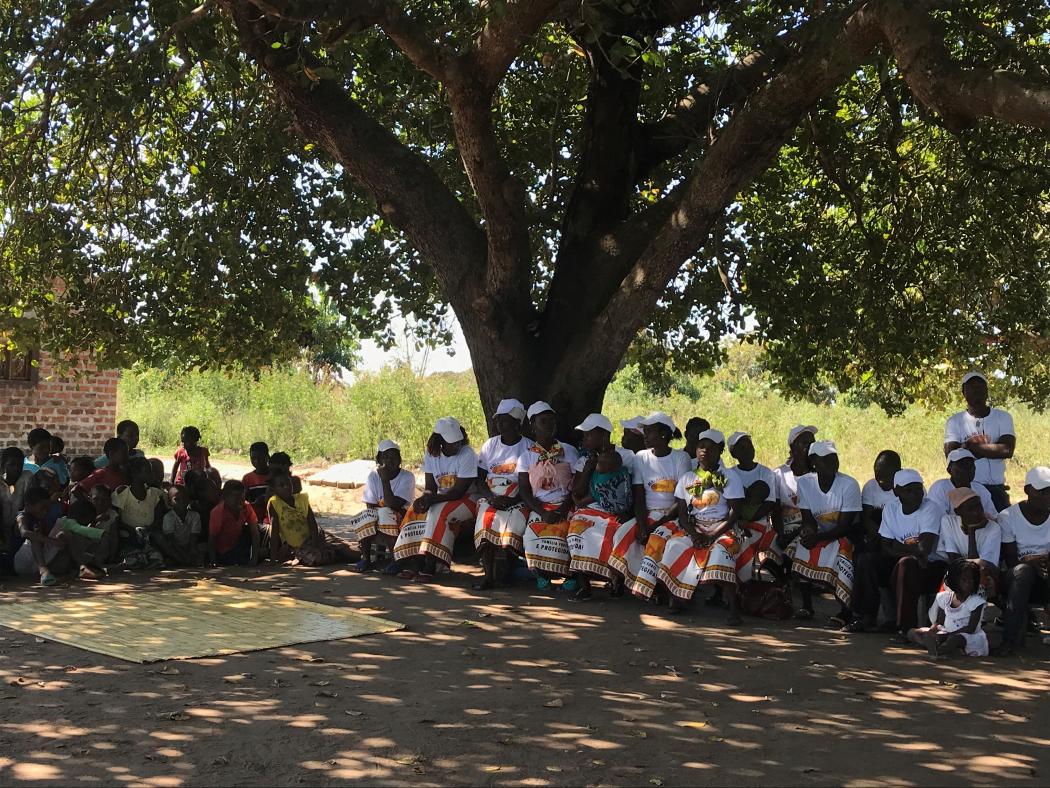Supporting Community Health Workers and Volunteers - Reflections from Mozambique

Volunteer community health workers gather for a meeting under a tree in Mocuba, Mozambique
By Lisa Bos, World Vision
I recently returned from a trip with Congressional staff to Mozambique focused on seeing both the impact of US investments in the country and challenges that the country faces in providing high-quality health services. Mozambique’s vast size, and how recently stability came to the country—it achieved independence from Portugal in 1975, but then a civil war lasted nearly 15 years—pose challenges to ensuring communities have access to essential services.
This continued legacy of colonialism and conflict has led to slower progress in development—Mozambique ranks in the bottom eight countries in the 2016 UN Human Development Report. Poverty remains high. Of the children that complete primary school, two-thirds leave the system without basic reading, writing, and math skills, according to USAID. More than half of Mozambicans must walk an hour or more to their nearest health facility. There are only three doctors per 100,000 people.
Frontline health workers deliver essential services and information, due to the size of the country, yet many are often poorly trained and lack the skills needed to provide essential services. Our group met with a community health committee near the town of Mocuba where volunteer frontline health workers, supported by the Global Fund to Fight AIDS, Tuberculosis and Malaria, focus on bringing health messages to the community.
Given the context in Mozambique, the challenges faced by this group are widespread, and not unique to frontline health workers. Many people in rural communities face barriers to services, including long distances to health facilities in areas that lack transportation, as well as resistance to some critical health messages, and traditional healers offering alternative services.
As with many countries that rely heavily on community health workers, the extent to which they are linked to the formal health system, and being utilized as formalized extensions of the government health system, is still being decided. Discussions around their compensation focus on payment through a stipend or other support, such as bicycles. The provision of bicycles would provide these frontline health workers with a more effective means of reaching the communities with no health outpost, providing referrals when necessary and linkages to the health system.
It was clear from our visit that US government support through PEPFAR, the Global Fund and other disease-specific programs are needed to ensure services for those diseases are provided. However, we also heard frequently heard of a large unmet need to strengthen the health system, especially the frontline health workforce.
Literacy rates are low and without funding that is specifically dedicated to training a health workforce, it remains a challenge to train skilled health workers. The funding gap is especially problematic—500 health workers who were recently trained were unable to find employment because there was no money to hire or support those workers. It clearly showed the need for better planning and coordination, but also for the need to better support health workforce salary and retention programs.
While Mozambique’s challenges will not be overcome quickly, it was encouraging to see the progress and the commitment of frontline health workers to their communities. Many of these workers are volunteers, and they work to improve the health of their communities, not for money but through a desire to see change. In order to see long-term, sustainable results, it will take continued investments in the training of health workers, and improvement of the health system as a whole.
See here for more information about World Vision's work. Photo courtesy of World Vision
